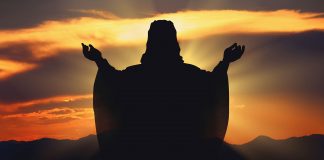Two steps back, but three steps forward
On the morning of the 15 November 2016, I awoke in a hospital bed, with no memory of how I got there. My favourite pyjamas had been torn from my body, and I lay in a hospital gown, a piercing pain in my head, impaling my brain. I was barely able to think and incapable of speech. I was scared, though this was...
The mark of the beast | A controversial apocalyptic motif
In addition to its social and economic consequences, the COVID-19 pandemic also raised a religious question that has been raised every time there has been a major change in society: did the wearing of the mask, the anti-COVID vaccine or the green certificate have anything to do with the mark of the beast or the number 666 in the last book of the...
Suffering and the meaning of life
I have always imagined that well-being, bright prospects, good health and a clear purpose in life tend not to inspire questions about the meaning of life very often.
Really Living
The following interview was conducted by Hope Channel Romania almost ten years ago when the guest, Pastor Don Schneider, was the president of the Adventist Church in North America. Last year, on May 23, he passed away at the age of 76. Those who follow Hope Channel remember that, for a few seasons, they were able to watch his show, Really Living. Every...
Ready for the return of Jesus
"Look, I am coming soon!" (Revelation 22:12) This is a promise whose fulfilment has been awaited by generations of believers who have pinned all their hopes on Jesus's return in glory. But what does "soon" mean? And what should we do to avoid being so preoccupied with the signs that we neglect other essential aspects of our preparation?
The Second Coming Files: A 2000-Year Inquiry | Part I: The fossilisation of the great Christian hope
Any religion’s popularity depends on the rewards it promises. While people are interested in the immediate benefits of this life, they are mostly interested in the future, the hope their religion brings, and how solid it is.
Judge and jury
I once served on a jury and, to my surprise, was voted foreman. The accused was charged with manslaughter, a serious crime with quite a harsh penalty; while driving an aged-care minivan filled with pensioners, he’d hit and killed a pedestrian. The defendant was a facility volunteer who had been taking a group of pensioners shopping. His vehicle collided with the deceased in...
(Un)Interesting sermons and the forgotten art of listening to the Word
If we were asked how many of the thousands of sermons we’ve listened to in a lifetime were truly memorable, the answers might not be too encouraging for those called to share Scripture. Equally challenging, however, remains the way we prepare to be good listeners of the Word.
The darker side of our world
The world of the homeless is the darker side of our world. It is inhabited by vagrants, drug addicts, and the powerless. This world has its own rules, customs, pleasures, and pains, but lacks meaning and peace. And those who enter this world struggle to leave it.
The Good Place: great questions, medium answers
In the opening scene of The Good Place, celestial being Michael (Ted Danson) explains that most world religions and philosophies get their respective understandings of the afterlife only about five per cent right.
In the footsteps of the historical Jesus: benefits and perils
Christianity is either historical or not. It claims that “God acted decisively in history, revealing Himself in external, specific events attested in the Scriptures of the Old and New Testaments.”[1] The most important of these events was the coming of Jesus as the Messiah, the saving Christ.
Son of God
Even in this secular age, the world’s largest group of religious believers—a full third of Earth’s human population—worships Jesus of Nazareth as the eternal God who appeared in human flesh. Millions more—Muslims, Baha’i, Hindus, Buddhists and others—recognise His unique connection to the Divine, His wisdom and His compassion.
The primary message
How do we discover the intention of the biblical author—and how important is it in interpreting the Bible correctly?
#SELFCARE for Christians
The concept of self care—defined as the entirety of ways in which a person understands how to solve their emotional problems and manage their anxieties—has become a real movement in the past two years with an entire industry ready to make our lives easier and more comfortable. For Christians, however, this trend has proven to be quite problematic: making our lives easier is...
Jesus is the argument
Celsus was concerned about the spread of the new sect called Christianity. He felt that Christianity's view of the world and of life was so different from the ancient world order that, if accepted by the majority, it would ruin society.


























